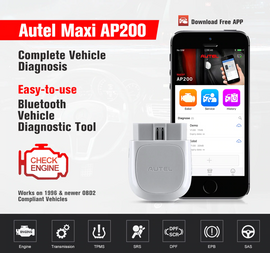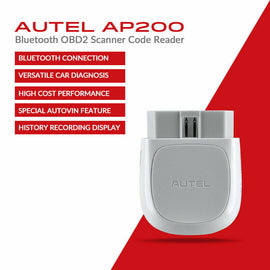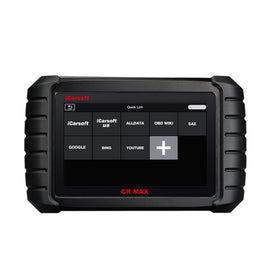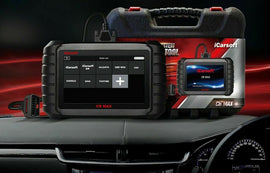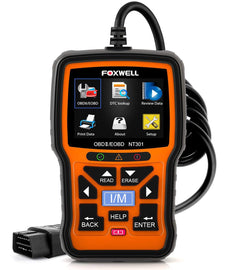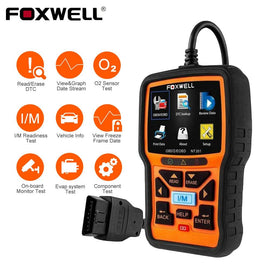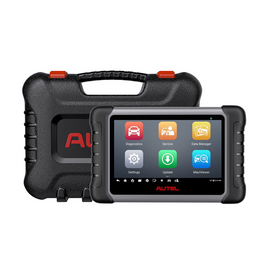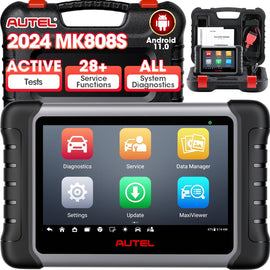Vehicle repairing can be costly, especially if the diagnosis of the problem is wrong. Besides, one cannot book a car for regular maintenance. But if you have a choice between taking a car to a professional or getting DIY Tools, you want to choose the latter.
Car owners can now attempt repairs on their own more easily than ever, thanks to the development of accessible online tutorials, the best car diagnostic scan tool, key programmers, and even upgrades like LED headlights that can be installed at home.
However, in some circumstances, professional workshops' dependability and knowledge are still unrivalled. You can choose the best course of action for the maintenance of your vehicle by being aware of the balance between the two.
Let us help you understand what might be the better choice for you.
Why DIY Tools Are Becoming Popular
Because specialist equipment was costly and out of reach for regular drivers, the majority of vehicle repairs in the past required a trip to the workshop. That has changed today.
Nowadays, OBD2 scanners for car owners are also available, ranging from socket sets to those that allow them to read error codes, reset check engine lights, and monitor the condition of their vehicles from the comfort of their own homes.
Over time, do-it-yourself tools can also save money. You can perform basic maintenance yourself rather than paying for labour to replace things like brake pads, spark plugs, or air filters. For individuals who enjoy working on their cars, the availability of budget-friendly diagnostic and DIY Tools is more feasible. DIY auto repair also improves your understanding of your vehicle, which boosts your confidence in an emergency.

Benefits of Professional Workshops vs DIY Tools
Despite the allure of do-it-yourself projects, professional mechanics provide years of training and experience that tools cannot match. One of the best arguments in favour of workshops in the Professional Workshop vs DIY Tools debate is their use of cutting-edge vehicle diagnostic tools.
Professional systems, as opposed to consumer-grade scanners, establish a direct connection with manufacturer databases, offering comprehensive defect reports and suggested solutions.
For instance, although a simple scanner might indicate that your car has an oxygen sensor problem, a qualified mechanic can determine whether the problem is with the wiring, the sensor itself, or the exhaust system as a whole.
Additionally, workshops offer warranties for their work, so in the event of an issue, the service provider, not the vehicle owner, is liable.
Efficiency is another important benefit. A professional mechanic often completes a task much faster than a do-it-yourself enthusiast. When working with complicated systems like suspension, transmissions, or safety-critical parts, this speed is particularly vital.
Factors to Help You Decide
When choosing 'Which is better, a professional workshop or DIY tools?' Think about the following:
-
Complexity of the Job: DIY is best suited for routine maintenance like brake pad replacements or oil changes. It is best to leave complex diagnostics and engine management system repairs to experts.
-
Cost Savings vs Guarantee: If done properly, DIY projects can save money, but workshops offer a guarantee that lowers long-term risks.
-
Time Commitment: DIY is rewarding if you have the time and enjoy tinkering. Professional assistance is the best option if you need a fast, dependable fix.
-
Safety Considerations: There are always risks involved when working with cars. Safety can be impacted by improper repairs, particularly when it comes to electrical, steering, and brake systems.
Pros & Cons of DIY Auto Repair Tools vs Professional Workshop
Before making a choice, every car owner should consider the Pros and cons of DIY tools vs a professional workshop.
1. DIY Tools – Advantages:
-
Gradually reduce the cost.
-
The ability to work at your own speed.
-
Development of abilities and self-assurance in vehicle ownership.
-
The capacity to address small problems right away.
2. DIY Tools – Limitations:
-
Learning curve and possible errors.
-
Restricted tool capability in contrast to the tools of a Professional calibre.
-
Warranties do not cover self-made repairs.
3. Professional Workshop – Advantages:
-
Access to professional training and expertise.
-
Use of cutting-edge automotive diagnostic tools.
-
Quicker turnaround for intricate fixes.
-
Accountability and warranties.
4. Professional Workshop – Limitations:
-
Greater initial expenses.
-
Reliance on the availability of the schedule.
-
Owners will be less actively involved.
The Middle Ground
One or the other need not be the case. A mixed approach is beneficial to many car owners, who handle minor repairs themselves and entrust larger, riskier jobs to experts. For example, you can determine the type of issue before determining whether you can solve it on your own or require professional assistance by using a best car diagnostic tool at home.
This hybrid approach guarantees expert oversight where it counts most, saves money, and gives you confidence. Your comfort level, technical proficiency, and willingness to put in the time to learn will ultimately determine the choice. Just as many drivers invest in professional GPS Trackers in Australia for added security, having a reliable DIY scanner tool on hand empowers you to manage smaller car issues with ease.
Conclusion
When it comes to car care, both workshops and DIY tools offer value depending on your needs. Using a diagnostic scan tool for Australian cars allows you to handle smaller repairs at home, while professional workshops ensure expert service for complex jobs.
The balance lies in choosing wisely—save money with DIY when it’s simple and trust experts when safety is at stake.
At Auto Lines Australia, we offer high-quality automotive solutions, including diagnostic tools, headlights and accessories, enabling car owners to maintain their vehicles confidently. Whether DIY or professional, the right choice ensures long-term reliability.
FAQs
1. What are the benefits of a professional workshop vs DIY tools for auto repair?
Professional workshops provide expert knowledge, advanced diagnostic tools, and warranties, ensuring accurate repairs. DIY tools save costs, allow minor fixes at home, and boost confidence in handling routine car maintenance tasks independently.
2. How to choose between DIY tools vs a professional workshop for car maintenance?
Consider job complexity, cost, time, and safety. DIY tools work well for routine tasks. At the same time, professional workshops are better for complicated repairs requiring expertise, advanced equipment, and guaranteed service for long-term reliability.
3. Is a professional workshop better than DIY tools for long-term vehicle care?
Yes, for long-term reliability, professional workshops are better as they use advanced diagnostics, ensure accuracy, and offer warranties. DIY tools are helpful for minor fixes but lack the professional oversight essential for complex issues.

